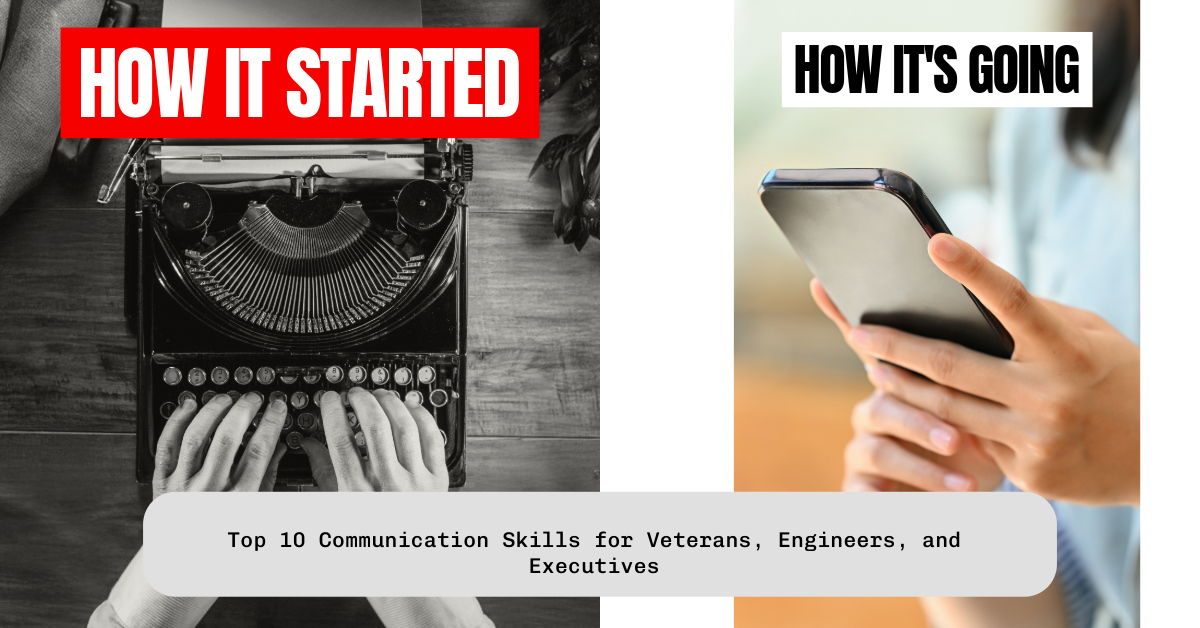In the digital age, where information is abundant and attention spans are short, the ability to write clearly and concisely is more important than ever. For veterans transitioning into engineering roles and engineers aspiring to leadership positions, mastering this skill can significantly enhance career prospects and foster effective communication. This article explores the importance of clear and concise writing, its benefits, and practical strategies to develop this skill, with a focus on coaching veterans and engineers.
Understanding Clear and Concise Writing
Clear and concise writing involves expressing ideas in a straightforward and succinct manner, without unnecessary words or jargon. This skill is essential for conveying complex information in a way that is easily understood by diverse audiences. For veterans and engineers, who often work in technical fields, clear and concise writing can lead to better collaboration, improved project outcomes, and successful leadership.
The Importance of Clear and Concise Writing for Veterans
Veterans bring a wealth of experience and skills to the engineering field, but transitioning from a military to a civilian career can present communication challenges. Clear and concise writing helps veterans effectively articulate their ideas and experiences, making it easier to connect with colleagues and stakeholders.
Key benefits of clear and concise writing for veterans include:
- Effective Communication: Clearly conveying ideas and instructions fosters understanding and collaboration within teams.
- Professional Credibility: Writing with clarity and precision enhances credibility and professionalism in civilian work environments.
- Successful Transition: Clear communication aids in adapting to new roles and responsibilities, facilitating a smoother transition from military to civilian careers.
The Role of Clear and Concise Writing in Engineering
Engineers are often tasked with communicating complex technical information to diverse audiences, including clients, team members, and executives. Clear and concise writing is a critical skill that enhances their ability to convey technical concepts and collaborate effectively.
Key benefits of clear and concise writing for engineers include:
- Improved Collaboration: Writing clearly and concisely ensures that all team members understand project goals and requirements.
- Effective Leadership: Engineers aspiring to leadership roles can use clear writing to inspire and guide their teams.
- Enhanced Client Relations: Clearly communicating technical information to clients leads to better project outcomes and customer satisfaction.
Strategies for Developing Clear and Concise Writing Skills
- Know Your Audience: Tailor your writing to the needs and expectations of your audience. Consider their level of expertise and familiarity with the subject matter.
- Plan and Organize: Before writing, outline your main points and organize them logically. This approach ensures that your writing is focused and coherent.
- Use Simple Language: Avoid jargon and technical terms that may be unfamiliar to your audience. Use simple language to convey complex ideas.
- Be Direct: Get to the point quickly and avoid unnecessary details. Use active voice and strong verbs to convey your message clearly.
- Edit and Revise: Review your writing for clarity and conciseness. Eliminate redundant words and phrases, and ensure that each sentence contributes to your overall message.
- Seek Feedback: Share your writing with colleagues or mentors and ask for feedback on clarity and conciseness. Use their input to improve your writing skills.
- Practice Regularly: Like any skill, clear and concise writing improves with practice. Write regularly and challenge yourself to convey your ideas more effectively.
Coaching Veterans and Engineers in Clear and Concise Writing
Coaching programs tailored for veterans and engineers can play a pivotal role in developing clear and concise writing skills. These programs should focus on:
- Customized Training: Addressing the unique communication challenges faced by veterans and engineers through targeted workshops and exercises.
- Mentorship Opportunities: Pairing participants with experienced mentors who can provide guidance and feedback on writing practices.
- Real-World Scenarios: Incorporating writing exercises that mimic real-world situations to practice clear and concise writing in a safe environment.
- Continuous Feedback: Providing ongoing feedback and support to reinforce learning and encourage skill development.
Conclusion
Clear and concise writing is a powerful tool that can transform the way veterans and engineers communicate and lead. By mastering this skill, they can enhance collaboration, improve project outcomes, and drive innovation in their respective fields. As the demand for effective communication continues to grow, investing in clear and concise writing will undoubtedly yield significant returns for individuals and organizations alike.
For veterans transitioning to engineering roles and engineers aspiring to leadership positions, clear and concise writing is not just a skill—it’s a pathway to success. By embracing this practice, they can unlock their full potential and make a lasting impact in their careers and communities.
By focusing on clear and concise writing, veterans and engineers can enhance their communication abilities, paving the way for successful transitions and leadership opportunities. Whether you’re a veteran entering the engineering field or an engineer looking to advance your career, mastering clear and concise writing is a crucial step toward achieving your goals.
